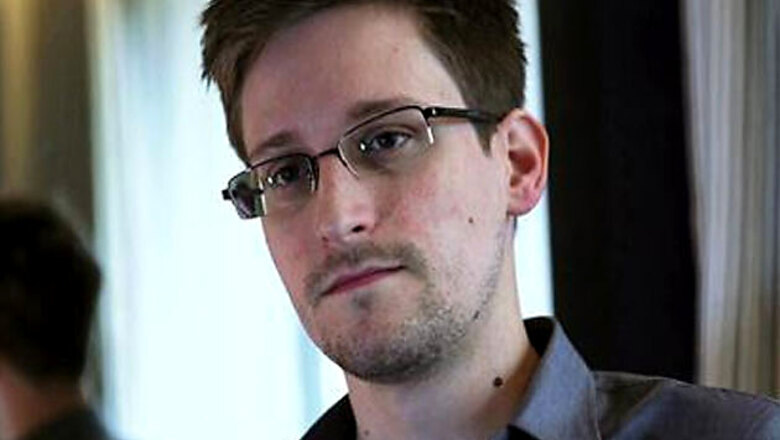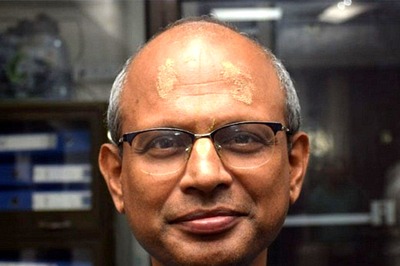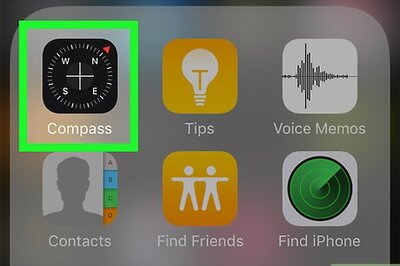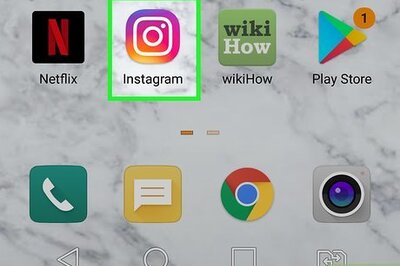
views
Former US National Security Agency contractor Edward Snowden told German TV on Sunday about reports that US government officials want to assassinate him for leaking secret documents about the NSA's collection of telephone records and emails.
In what German public broadcaster ARD said was Snowden's first television interview, Snowden also said he believes the NSA has monitored other top German government officials along with Chancellor Angela Merkel.
Snowden told ARD that he felt there are "significant threats" to his life but he said that he nevertheless sleeps well because he believes he did the right thing by informing the public about the NSA's activities.
"I'm still alive and don't lose sleep for what I did because it was the right thing to do," said Snowden at the start of what ARD said was a six-hour interview that was filmed in a Moscow hotel suite. ARD aired 40 minutes of the six-hour interview.
"There are significant threats but I sleep very well," he said before referring to a report on a US website that he said quoted anonymous US officials saying his life was in danger.
"These people, and they are government officials, have said they would love to put a bullet in my head or poison me when I come out of the supermarket and then watch me die in the shower," Snowden said.
Questions about US government spying on civilians and foreign officials became heated last June when Snowden leaked documents outlining the widespread collection of telephone records and email.
Snowden was granted asylum in Russia last summer after fleeing the United States, where he is wanted on espionage charges for leaking information about government surveillance practices.
The revelations shocked Germany, a country especially sensitive after the abuses by the Gestapo during the Nazi reign and the Stasi in Communist East Germany during the Cold War.
Reports the NSA monitored Merkel's mobile phone have added to the anger in Germany, which has been pushing for a 'no-spy' agreement with the United States, a country it considers to be among its closest allies.
"What I can say is that we know that Angela Merkel was monitored by the NSA," said Snowden, wearing a dark suit and loose-fitting white shirt. "But the question is how logical is it that she's the only one who was monitored, how likely is it that she was the German person the NSA was watching?
"I'd say that it's not very likely that anyone who was watching the German government was only watching Merkel and not her advisers nor other government officials nor ministers, heads of industries or even local government officials."
Snowden said the NSA is active in industrial espionage and will grab any intelligence it can get its hands on regardless of its national security value. He said the NSA doesn't limit its espionage to issues of national security and he cited German engineering firm Siemens as a target.
"If there's information at Siemens that's beneficial to US national interests - even if it doesn't have anything to do with national security - then they'll take that information nevertheless," Snowden said, according to ARD, which recorded the interview in Russia where he has claimed asylum.
TARGETS
Snowden's claim the NSA is engaged in industrial espionage follows a New York Times report earlier this month that the NSA put software in almost 100,000 computers around the world, allowing it to carry out surveillance on those devices and could provide a digital highway for cyberattacks.
The NSA planted most of the software after gaining access to computer networks, but has also used a secret technology that allows it entry even to computers not connected to the Internet, the newspaper said, citing US officials, computer experts and documents leaked by Snowden.
The newspaper said the technology had been in use since at least 2008 and relied on a covert channel of radio waves transmitted from tiny circuit boards and USB cards secretly inserted in the computers.
Frequent targets of the programme, code-named Quantum, included units of the Chinese military and industrial targets.
Snowden faces criminal charges after fleeing to Hong Kong and then Russia, where he was granted at least a year's asylum.
He was charged with theft of government property, unauthorized communication of national security information and giving classified intelligence data to an unauthorised person.




















Comments
0 comment